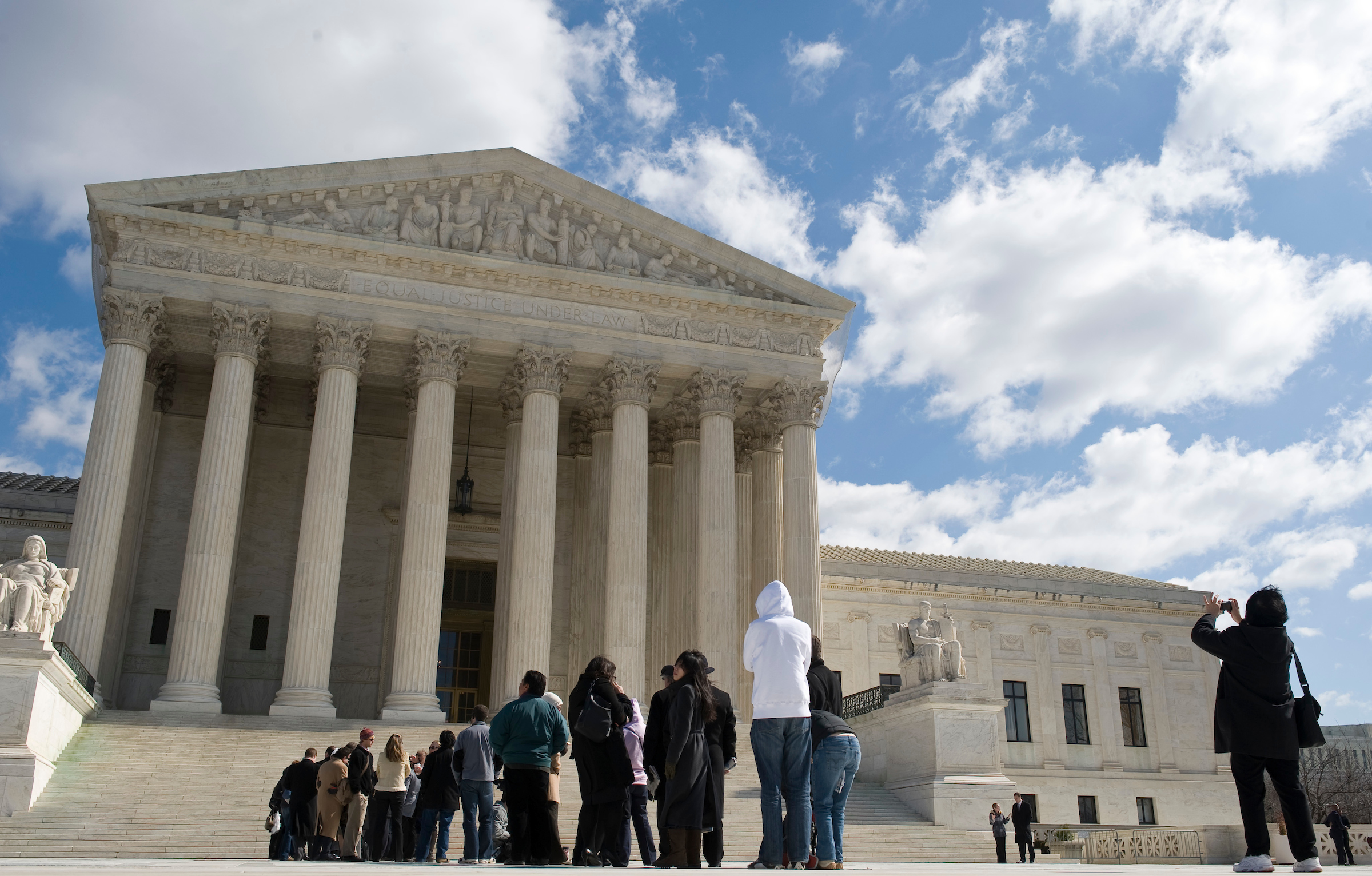Supreme Court Overturns 1992 Sales Tax Ruling
Decision will ripple through the economy, lawmakers and business groups say

A divided Supreme Court on Thursday accomplished something that Congress couldn’t in the past 26 years — overturn a 1992 ruling that barred states from collecting sales tax from out-of-state vendors.
Business groups and lawmakers expect the decision to reverberate throughout the economy, affecting online retail giants, small businesses and brick-and-mortar stores, and that could build pressure for congressional action.
“I am glad the Court realized the importance of closing this gaping loophole in our tax law that denied states the right to enforce their own laws and to collect the taxes they were owed,” said Republican Sen. Michael B. Enzi of Wyoming, who has worked on the issue for years. “This issue has always been about fairness and this ruling will help local businesses, states and local governments.”
The court’s 5-4 opinion overturns the previous decision in Quill Corp v. North Dakota, which kept a rule that states could not require retailers to collect sales and use taxes unless the company had a physical presence in that state. Back then, the court ruled that Congress may be better qualified and have the ultimate power to resolve the interstate commerce issues.
The Supreme Court split Thursday on who should resolve the issue. The majority concluded it was up to the Supreme Court to reassess its own decision, while the minority insisted Congress needed to be the one to act on an important question of economic policy.
Similarly, the case divided lawmakers working on legislation to resolve the complex economic issues. Some groups of lawmakers said overturning the ruling would free Congress to act, while other groups of lawmakers said that could “chill” ongoing congressional efforts to address the issue.
Justice Anthony M. Kennedy, writing for the majority, said major changes in the prevalence of online sales since 1992 mean that the Quill decision causes billions of dollars in revenue shortfalls by states seeking sales and use taxes, and prevents equal business competition.
“It is inconsistent with the Court’s proper role to ask Congress to address a false constitutional premise of this Court’s own creation,” Kennedy wrote. “It is currently the court, and not Congress, that is limiting the lawful prerogatives of the States.”
Joining Kennedy’s opinion were Justices Clarence Thomas, Ruth Bader Ginsburg, Samuel A. Alito Jr. and Neil Gorsuch.
South Dakota, which passed a law specifically to give the Supreme Court a chance to revisit the Quill decision, told the justices that they need to overturn the old ruling because 26 years of inaction demonstrates Congress is unlikely to do so.
Chief Justice John G. Roberts Jr., writing a dissent, said online commerce has grown into “a significant and vibrant” part of the national economy against the backdrop of established rules, including the physical presence rule first established in 1967 ruling and that the court upheld in the Quill case.
“Any alteration to those rules with the potential to disrupt the development of such a critical segment of the economy should be undertaken by Congress,” Roberts wrote. “The Court should not act on this important question of current economic policy, solely to expiate a mistake it made over 50 years ago.”
Roberts’ dissent was joined by Justices Stephen G. Breyer, Sonia Sotomayor and Elena Kagan.
NetChoice, a trade association to promote online commerce, said the ruling would “unleash a summer of chaos” as small businesses struggle to comply with the conflicting tax rules of more than 12,000 local tax jurisdictions across 46 states.
“Consumers will quickly feel the negative effects as those businesses dry up or are forced into the arms of Internet giants,” said former Rep. Chris Cox, who authored a law on internet taxation and now is NetChoice outside counsel.
“The last hope for consumers and small online business owners is for Congress to take action,” Cox said. “It should be Congress, not the courts, that sets the rules for interstate sales tax collection.”
Another trade association, the Retail Industry Leaders Association, said the ruling would lift a rule that put “local brick and mortar stores at a competitive disadvantage with their online-only counterparts.”
“Today’s ruling will give every retailer the opportunity to compete on a level playing field without government’s thumb on the scale — that’s a win for all those who believe in free markets,” said Deborah White, the group’s general counsel. “For the consumer, this means an increasing array of options both in-store and online, with competition for their business based on price, service, selection and value — not special tax treatment.”
Grover Norquist, the president of Americans for Tax Reform, said the Supreme Court’s ruling is taxation without representation.
“Today the Supreme Court said ‘yes — you can be taxed by politicians you do not elect and who act knowing you are powerless to object,’” Norquist said.
The case is South Dakota v. Wayfair Inc.
Watch: Torres Gets Emotional About Family Separation, Border Wall





